Baku's 8-0 victory Diplomacy of sovereignty
The famous Austrian diplomat Prince Metternich once said that no battle can be considered won or lost until a decent period of time has passed. For successes in material reality can be nullified by the mistakes or inaction of diplomats and politicians. The Armenian nationalists and their allies in the West, primarily the French, acted in this logic. After the defeat in 2020, they planned to play the game of wag-bank against Azerbaijan once again, counting on Baku's failure to cope with the political and diplomatic aspects of restoring the country's territorial integrity. For this purpose, they staked on intransigence, first preparing and then - after the September operation - ensuring the demonstrative departure of the population from the Karabakh region of Azerbaijan.
Their maximum programme was aimed at creating the appearance of a catastrophic event. It was to urgently increase international pressure on Baku and force the government to make concessions to the separatists. The minimum programme envisaged a longer-term international isolation of Azerbaijan and weakening of its position in peace negotiations. However, the whole idea failed, as even a cursory glance at the main directions of Azerbaijan's foreign relations will show.
1. The European Union (EU)
First of all, it is worth looking at ties with the West, since it was the West that the Armenian revanchists and their patrons abroad were trying to manipulate in an anti-Azerbaijani manner. Their main target was, of course, Europe. And Azerbaijani diplomacy had a difficult task to neutralise a number of relevant political intrigues. Contacts show that it has succeeded in doing so. In particular, President Ilham Aliyev visited Germany twice this year. Among other things, he took part in the Munich Security Conference, where he held meetings with a number of Western politicians.
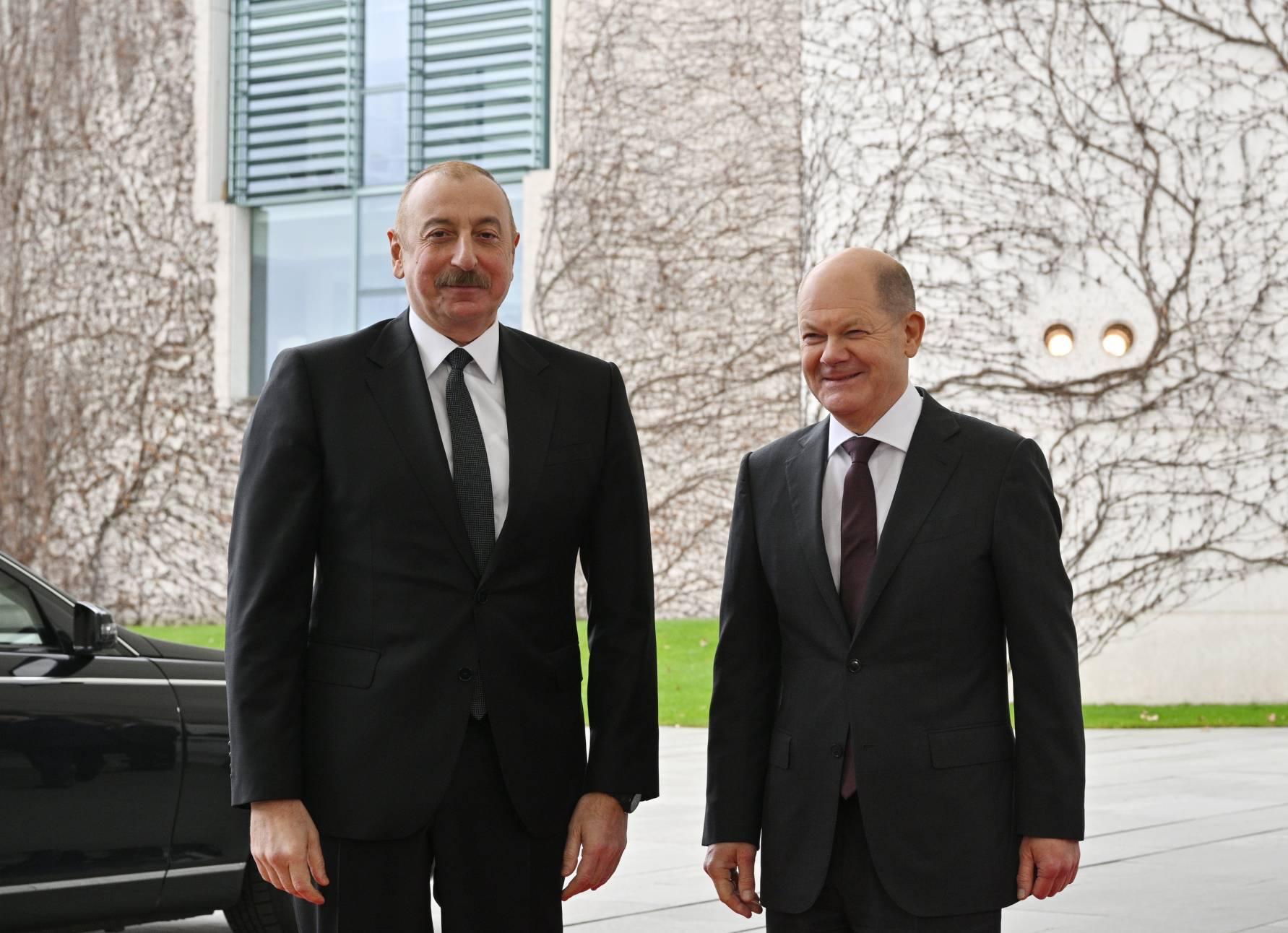
In other words, against the backdrop of problems with Macron's France, Baku has managed to establish relations with Germany. A year ago, the German leadership was sticking to Macron's line on South Caucasus issues - and this line threatened the entire region with, to put it mildly, dubious consequences. As we remember, a year ago, at the Granada summit, Scholz was on Macron's side, but now Berlin has reconsidered this course. This is an important step towards peace in the South Caucasus since it is the Paris-Berlin tandem that pulls the EU together, and therefore the more constructive position of the Federal Republic of Germany is also reflected in the position of the European Union.
Macron's games with Armenian revanchism have not reached the level of the entire association - despite all the excesses associated with the European Parliament. The number of documents on Azerbaijan's strategic partnership with EU countries has already reached a dozen agreements. Behind most of these declarations, there are real partnerships, not formal demonstrations - even if all sorts of things happen in the course of further interaction. An example is how Baku has for many years established fruitful relations with the largest southern European country, Italy, backed by a strong political and economic base. As a result, Italy has recently openly defended Azerbaijan from the intrigues of Paris. At the same time, Azerbaijani diplomacy works with all EU countries - big and small, and with all leaders - both right and left. An example is the recent visits to Baku of politicians as divergent in their views as the leaders of Slovakia and Bulgaria, as well as the May 17 visit of the Speaker of the Latvian Parliament to Shusha.
2. Anglo-Saxon countries
Relations with the EU are complemented by relations with the rest of the "collective West". Here it is worth noting the preservation of close ties with London. This allows not only to neutralise the policy of the traditional rival of the British - Paris, but also provides access to perhaps the second leading power of the "collective West" after the USA. In November, British Minister of State for Europe Leo Docherty visited Baku, and in February, British Foreign Office emissary Chris Allan visited Baku.
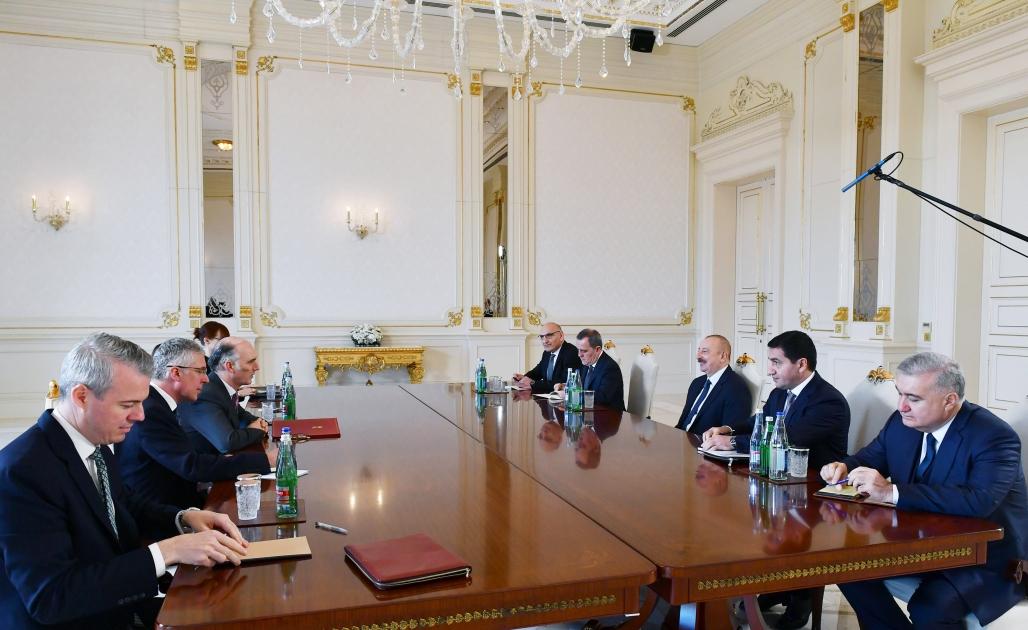
But even with the first power of this bloc - the United States - despite some incidents, relations are returning to normal. An example of this was the visit of Hikmet Hajiyev, aide to the Azerbaijani President and head of the Foreign Policy Department of the Presidential Administration, to the United States. On Friday-Saturday, among other things, he met with the US President's National Security Advisor Jake Sullivan and held meetings at the State Department and the federal Institute of Peace.
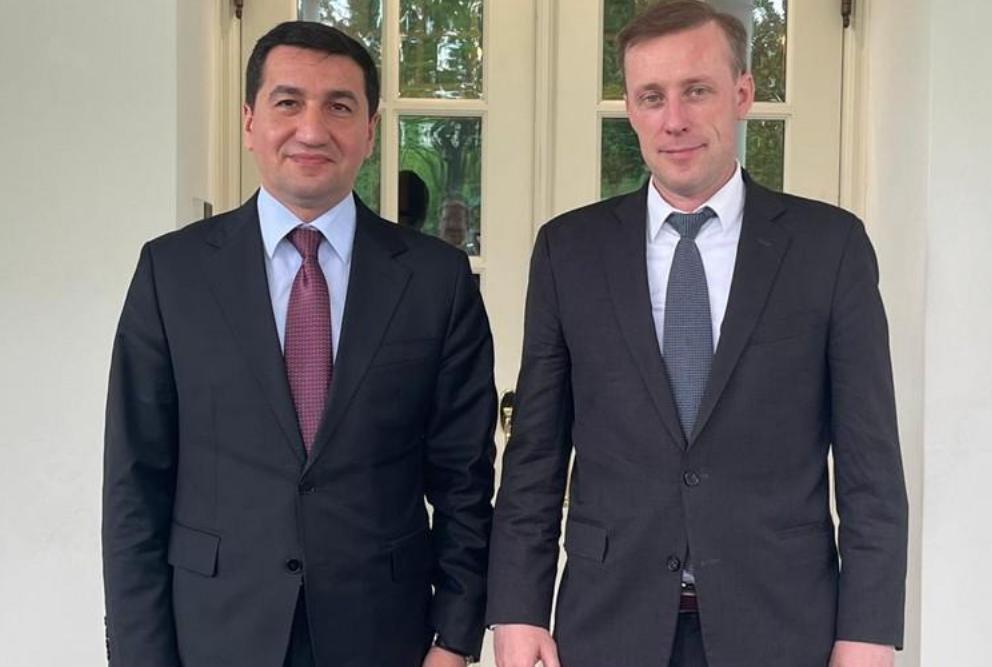
It is safe to assume that his trip is connected with conveying important messages for the future development of relations with the United States, and we are already talking about the prospect of relations at the level of strategic partnership.
3. China
Constructive relations with the West do not mean that Baku is going to sacrifice relations with countries and blocs that the "collective West" considers its opponents in favour of the current global hegemon. First of all, it concerns China. Numerous reciprocal visits of Azerbaijani and Chinese official representatives, and agencies directly involved in cooperation, testify to dynamically developing relations. For example, on May 14, President Aliyev received a delegation headed by Shen Yueyue, Deputy Chairman of the All-China Committee of the People's Political Consultative Conference of China, Chairman of the Chinese Committee of the Shanghai Cooperation Organisation for Good Neighbourliness, Friendship and Cooperation. Shortly, the two leaders are likely to meet within the framework of international organisations. Both sides are already thinking about a transition from a de facto strategic partnership to a de jure strategic partnership.
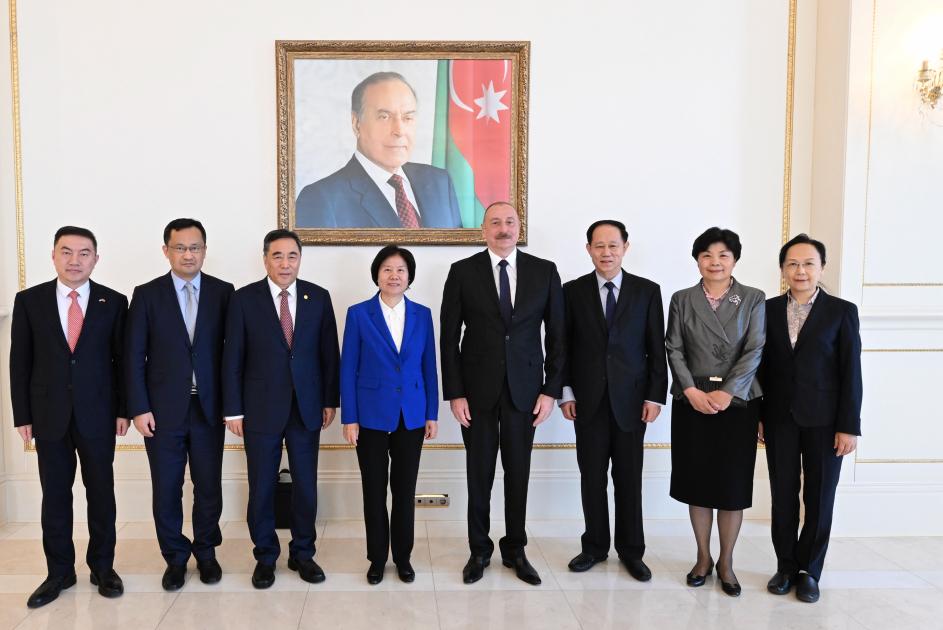
There are favourable geopolitical conditions for this. During his visit to China in March, Azerbaijani President’s Assistant Hikmet Hajiyev emphasised the importance of China-Azerbaijan cooperation within the framework of the One Belt, One Road initiative, particularly through the development of the Middle Corridor, in which Azerbaijan plays a key role. He said that "the Middle Corridor can become an important link between China and the European Union. Azerbaijan as well as Central Asian countries along the Caspian and Black Seas can be good partners in building links. This fits well with the "One Belt, One Road" route.
5. Russia, Collective Security Treaty Organisation (CSTO), Eurasian Economic Union (EAEU)
Developing relations with the West does not cancel the need to develop relations with Russia. Baku and Moscow may have different views on various issues, but their relations are allied. President Aliyev's visit to Moscow in April and successful negotiations with Russian President Putin testify to this - for contrast, just read the details of Pashinyan's recent trip to the EAEU summit in Moscow. The Azerbaijani leader's visit to Russia was preceded by a large-scale visit to Baku by a Russian government delegation led by Russian Prime Minister Mikhail Mishustin in March.
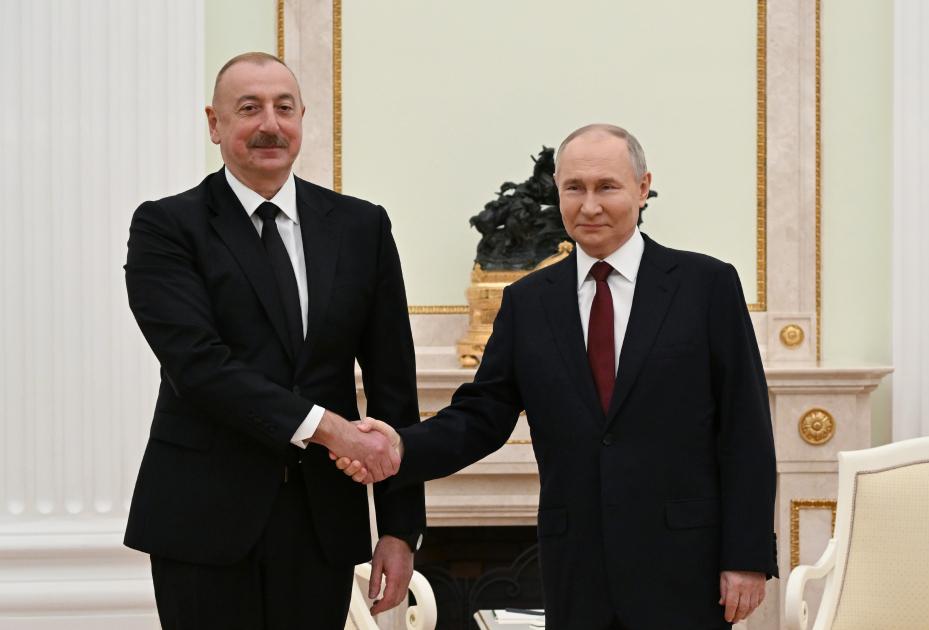
The Azerbaijani government has also managed to ensure constructive relations with the Collective Security Treaty Organisation (CSTO), which is affiliated with the Russian Federation. Although Armenia was originally a member of this organisation, all other CSTO members have long taken a position of strong support for Azerbaijan's territorial integrity. An example was the visit to Azerbaijan this week of the President of Belarus, who also visited the revitalised Karabakh region.
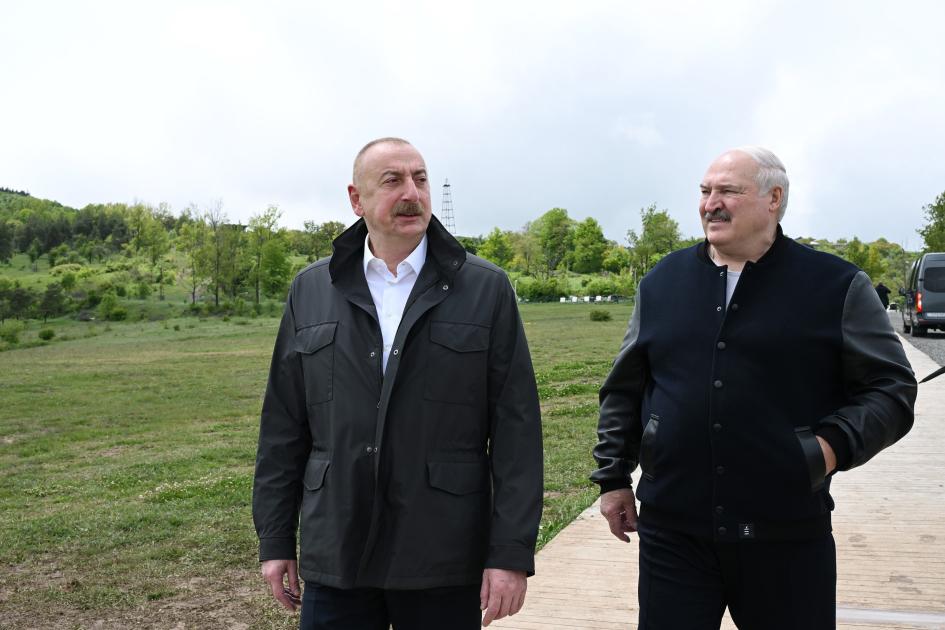
Interaction with the Russian Federation and its affiliated integration structures is reaching a new level due to the development of such connecting transregional projects as the North-South transport corridor and others. Unlike Armenia, which has increased its foreign trade many times due to anti-Russian sanctions, the project of transport corridor from Russia to Iran and the Indian Ocean supported by Azerbaijan is a project conceived a long time ago and it is incorrect to speak about its inherently anti-Western character. It follows from considerations of common sense.
6. Iran
In connection with this, without exaggeration, project of the future - the North-West transport corridor - relations with Iran are also growing in importance, which needs Azerbaijan in order to gain reliable access to Russia. Baku in recent months has resolved a number of misunderstandings that existed in relations with Iran. Even Pashinyan's pro-Western government was betting on Iran as its "last reserve" and a country that should support Armenian nationalists against Azerbaijan. Armenian propaganda incessantly told about certain "pan-Turkists" threatening Iran. However, these fears are mostly illustrated with unverifiable facts or outright curiosities, such as the behaviour of some football fans in Tabriz. A striking example of successful development of Azerbaijani-Iranian relations was not only Tehran's firm objections to Yerevan's attempts to draw Western powers into its confrontation with Baku.
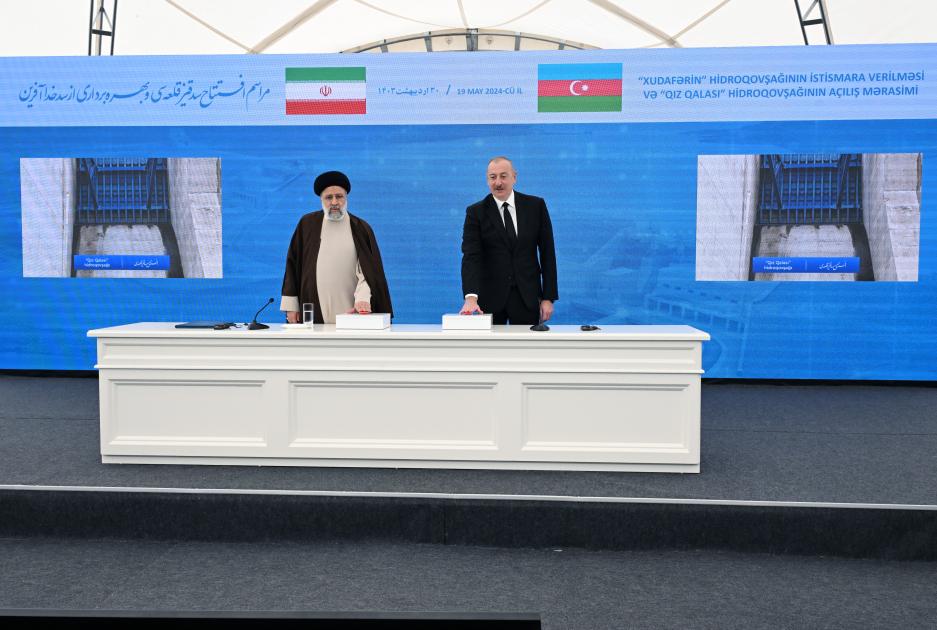
In a more positive example, Iranian participation in the reconstruction of the regions liberated from Armenian occupation, the jointly constructed Giz Galasi hydroelectric project was inaugurated on May 19 and the jointly constructed Khudaferin hydroelectric project was put into operation. The event was overshadowed by the subsequent tragic accident involving Iranian President Ebrahim Raisi's helicopter. Will it affect relations between Baku and Tehran? The policy of the late Raisi on the development of relations with Azerbaijan was based not on the personal preferences of the president, but on consensus in Tehran. In general, Iranian policy does not depend much on individuals, and therefore instead of examining conspiracy theories, it is better to look at the actual objects being built.
7. Central Asia
Some Armenian analysts have cautiously hoped for a "special position" from Central Asian countries on restoring Azerbaijan's territorial integrity. Armenian leaders have even actively travelled to Kyrgyzstan and Uzbekistan in recent years - but in vain, they supported Baku.
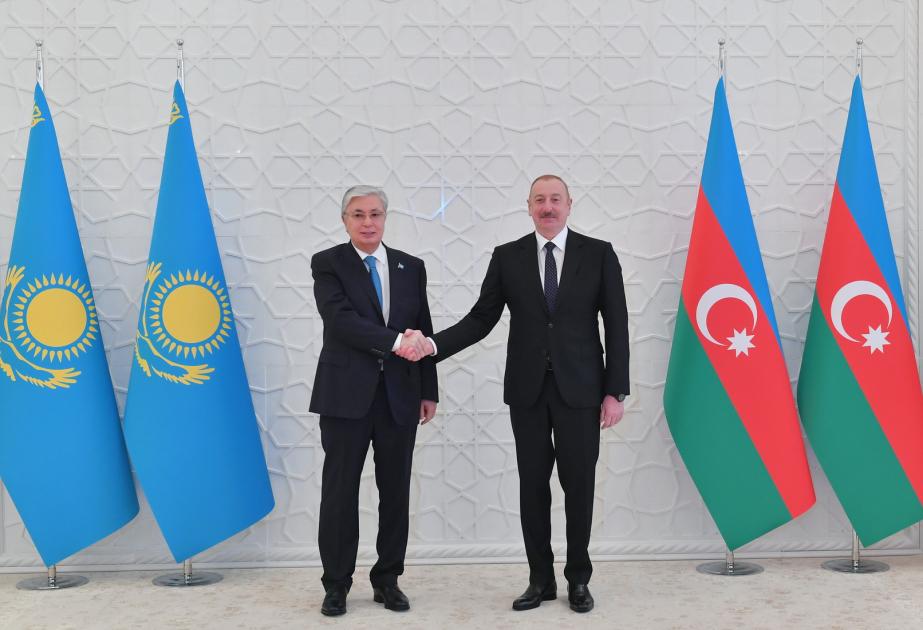
Azerbaijan's relations with the countries of Central Asia are deepening, facilitated by the opportunity created by the Azerbaijani government's longstanding efforts to provide the region's countries with an alternative route to European markets bypassing Russia. The positive dynamics of interaction is indicated by regular visits of officials - for example, Kyrgyz President Sadyr Zhaparov visited Azerbaijan in late April, Kazakh President Kassym-Jomart Tokayev paid a state visit to Baku in early March, Uzbek President Shavkat Mirziyoyev visited Azerbaijan in November, then President Aliyev visited Kazakhstan and so on. Some of these visits, as we can see, took place immediately after the completion of the operation to restore territorial integrity, which indicates the readiness of the Central Asian countries to support Azerbaijan in this matter.
8. World Community
Alongside very specific geographical areas, Azerbaijani diplomacy also addresses the majority of countries and peoples of the world with the most important topics concerning the very survival of mankind. These topics are especially important for the non-Western world, where the majority of the world's people live.
Firstly, Baku plays an important role in the Non-Aligned Movement. It is, of course, still weakened by the consequences of Western attempts to unilaterally mould the world system "for the West". But it is potentially a volcano that could change the entire face of world politics, as it retains a common sense ideology that rejects "bloc thinking" - refusing to participate in global slaughterhouses and seeking to address the immediate needs of its peoples and peaceful coexistence.
Secondly, due to the imminent holding of COP29 and the discussion of catastrophic climate change at this event, Azerbaijan has started to play a crucial role in putting the key issue back on the global agenda. After all, the main threat to the survival of mankind is the likely increase of climate change processes, the consequences of which primarily affect non-Western countries. And Azerbaijan, being engaged in the climate agenda, inevitably becomes the voice of the majority of humanity.
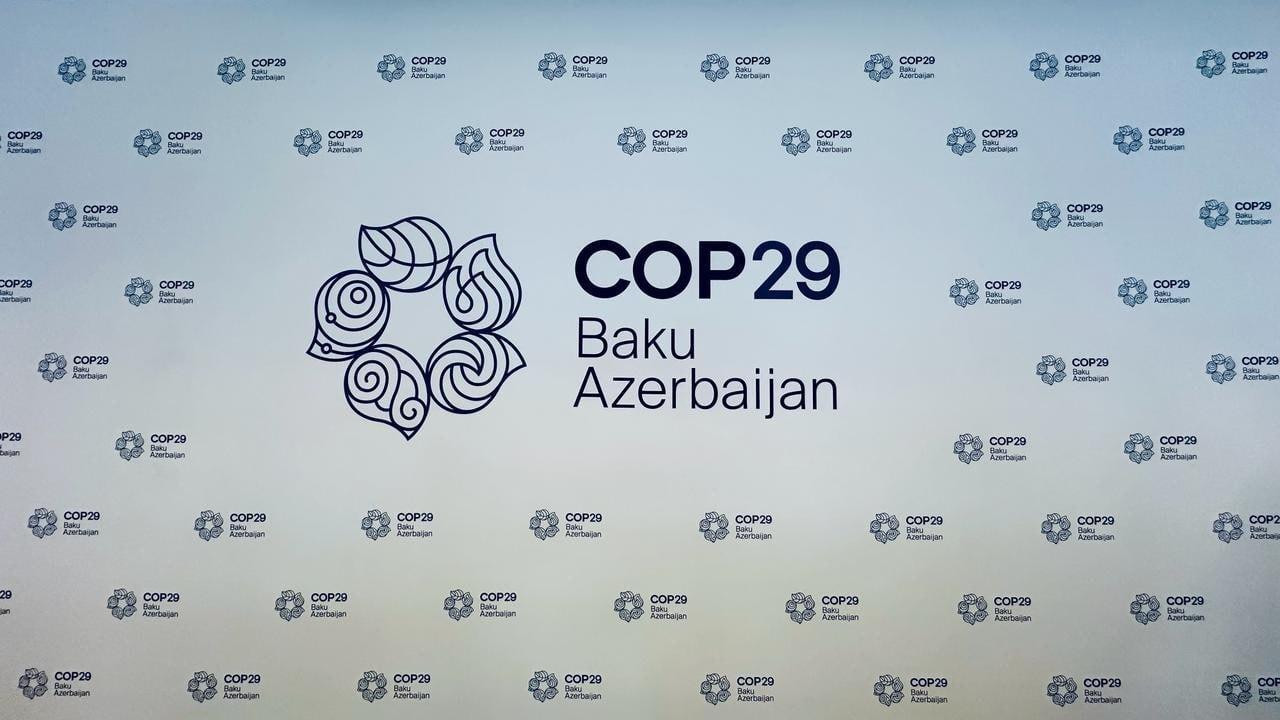
In conclusion, it can be noted that the Azerbaijani government is not waiting for the Armenian authorities to take a consistent constructive position, but continues to build international ties "without Armenia". And soon it is Armenia that may find itself alone in the Caucasus, while its distant allies will simply dismiss Yerevan. Azerbaijan's foes can as much as they like write off the active international contacts of the Azerbaijani government in all directions to mythical miraculous "caviar diplomacy" instead of recognising the obvious interest in the country in the world and the recognition by the international community of the correctness and validity of Azerbaijan's actions to restore its territorial integrity.
Moreover, by pursuing an active international policy, Azerbaijan, in cooperation with other neighbouring countries and peoples, is also building a new South Caucasus region linked by appropriate communications with other regions. Armenia was and is invited to normalise relations and take part in this process. But Yerevan is in no hurry. And it may be too late. After all, what matters in history is not only what is done, but also when it is done.
The views and opinions expressed by guest columnists in their op-eds may differ from and do not necessarily reflect the views of the editorial staff.








